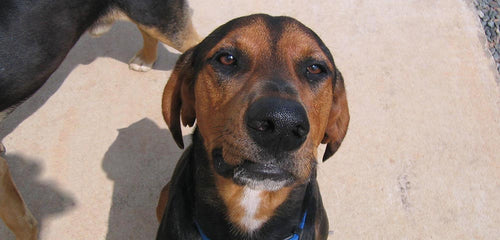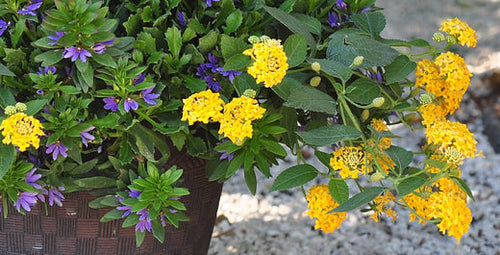It’s summer, and a lot of us are spending more time doing outdoor activities like camping. If you are planning to bring your pets with you on a camping tip, make sure you’ve taken the necessary precautions to ensure they’ll have a fun and safe time. Here at the ASPCA Animal Poison Control Center (APCC), we've created a list of tips to keep you and your furry friends safe from potential dangers this summer.
First Aid First! Before embarking on your summer adventure, make sure you've prepared a pet-friendly first aid kit. Many campsites are remote and won't have quick access to veterinary care, so having a fully stocked first aid kit could prove to be a life-saver.
Save important contact information. Locate the closest emergency veterinarian and save the contact information (either in your phone or address book) for emergencies. Also, be sure to keep the APCC’s number on hand. If you believe your pet ingested something potentially harmful, you can reach our APCC at (888)-426-4435.
Prep Your Pet. Ensure your pets have proper identification tags on their collars. You may want to consider a reflective collar for evening and nighttime safety.
Prevent and Prepare. Bring medications your pets may need. Keep in mind that because of the close quarters during a camping trip, your pet may be more likely to get into things he or she shouldn’t. Ensure that all prescriptions are in a childproof container and locked away safely.
Check for Poisons. Pets often find rodenticides at campsites. Remove rat poison, mothballs, or antifreeze before taking out a camper or recreational vehicle.
Take Pet-Proof Precautions. Upon arrival at a campsite, pet-proof the area first. Before letting your pet out, inspect the area to make sure other campers haven't left anything potentially dangerous behind. Also ensure that there aren’t accessible areas where your pets could become injured, such as gopher holes or a nearby stream. Never let your pets roam unsupervised.
Watch Out for Human Snacks. Other well-meaning campers may accidentally "treat" your pet to a toxic food unknowingly. Keep a close eye on snacks. If you have a question about whether a snack is poisonous to pets, check out the ASPCA Animal Poison Control Center’s list of people foods to avoid feeding your pet.
If you think your pet may have been exposed to a potentially toxic substance, please contact the ASPCA Animal Poison Control Center at 888.426.4435.
 The ASPCA was founded in 1866 and is a non-profit organization devoted to ensuring the kind and respectful treatment of animals. Its Animal Poison Control Center (APCC) is a resource available 24 hours a day, 365 days per year.
The ASPCA was founded in 1866 and is a non-profit organization devoted to ensuring the kind and respectful treatment of animals. Its Animal Poison Control Center (APCC) is a resource available 24 hours a day, 365 days per year.
First Aid First! Before embarking on your summer adventure, make sure you've prepared a pet-friendly first aid kit. Many campsites are remote and won't have quick access to veterinary care, so having a fully stocked first aid kit could prove to be a life-saver.
Save important contact information. Locate the closest emergency veterinarian and save the contact information (either in your phone or address book) for emergencies. Also, be sure to keep the APCC’s number on hand. If you believe your pet ingested something potentially harmful, you can reach our APCC at (888)-426-4435.
Prep Your Pet. Ensure your pets have proper identification tags on their collars. You may want to consider a reflective collar for evening and nighttime safety.
Prevent and Prepare. Bring medications your pets may need. Keep in mind that because of the close quarters during a camping trip, your pet may be more likely to get into things he or she shouldn’t. Ensure that all prescriptions are in a childproof container and locked away safely.
Check for Poisons. Pets often find rodenticides at campsites. Remove rat poison, mothballs, or antifreeze before taking out a camper or recreational vehicle.
Take Pet-Proof Precautions. Upon arrival at a campsite, pet-proof the area first. Before letting your pet out, inspect the area to make sure other campers haven't left anything potentially dangerous behind. Also ensure that there aren’t accessible areas where your pets could become injured, such as gopher holes or a nearby stream. Never let your pets roam unsupervised.
Watch Out for Human Snacks. Other well-meaning campers may accidentally "treat" your pet to a toxic food unknowingly. Keep a close eye on snacks. If you have a question about whether a snack is poisonous to pets, check out the ASPCA Animal Poison Control Center’s list of people foods to avoid feeding your pet.
If you think your pet may have been exposed to a potentially toxic substance, please contact the ASPCA Animal Poison Control Center at 888.426.4435.
 The ASPCA was founded in 1866 and is a non-profit organization devoted to ensuring the kind and respectful treatment of animals. Its Animal Poison Control Center (APCC) is a resource available 24 hours a day, 365 days per year.
The ASPCA was founded in 1866 and is a non-profit organization devoted to ensuring the kind and respectful treatment of animals. Its Animal Poison Control Center (APCC) is a resource available 24 hours a day, 365 days per year.

















